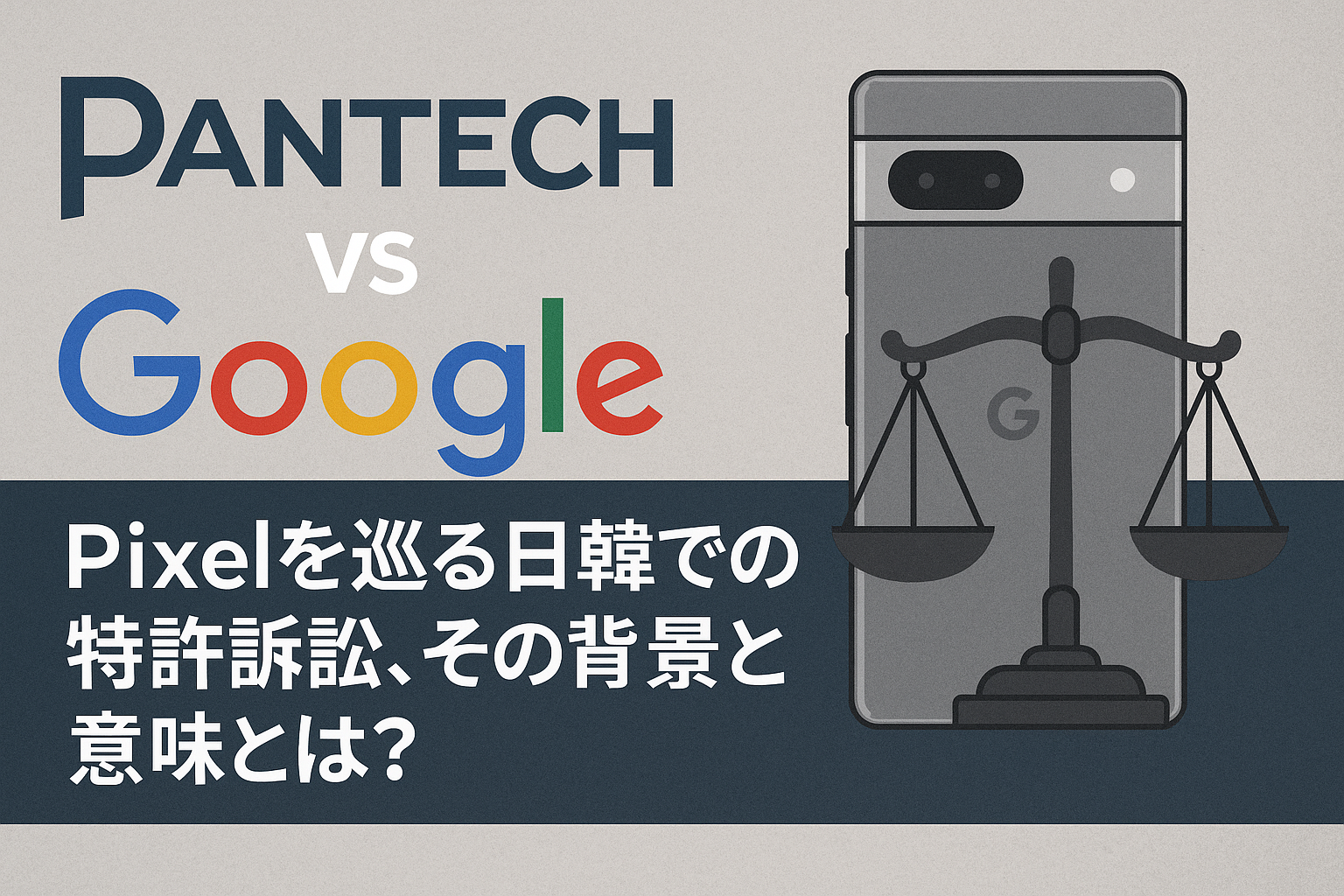On July 10, the Osaka District Court handed down a ruling in a patent infringement lawsuit filed by South Korea’s Pantech against the Japanese arm of Google. The subject of the dispute was Google’s smartphone, the Pixel 7a. The court dismissed Pantech’s claims, resulting in a victory for Google.
However, this news offers more than just the outcome of a corporate lawsuit. It contains valuable insights worth exploring from several angles.
Contrasting Rulings: Pantech Prevails in Tokyo
Notably, just a month earlier in June, the Tokyo District Court ruled in favor of Pantech over a similar issue concerning the Pixel 7, resulting in a defeat for Google.
This means that within Japan, two courts delivered completely opposite judgments on whether the Pixel series infringes Pantech’s patents. The divergence highlights how interpretations of patent scope and technical details can vary between courts, underscoring the complexity of patent litigation and the limitations of judicial decision-making.
The Current Status of Pantech: No Longer a Manufacturer
Once known as a major Korean mobile phone maker, Pantech underwent bankruptcy and is now a wholly owned subsidiary of the patent management company IdeaHub. Today’s Pantech no longer manufactures devices; instead, it operates as a so-called “patent troll,” generating revenue through litigation based on its legacy intellectual property assets (patents and trademarks).
This behavior is a textbook example of the “patent economy,” a business model that relies solely on intellectual property without production, and it is drawing increasing attention as companies rethink how to build value through IP.
Google’s Response: A Commitment to Responsible Licensing
Following its victory in the Osaka District Court, Google issued a statement emphasizing its commitment as a “responsible licensee” and its contribution to “innovation and fair licensing practices.”
This response not only reflects a defensive stance asserting that its technologies do not infringe on others’ rights, but also represents a PR strategy focused on intellectual property risk management as a global corporation.
Patent lawsuits are not just about technical issues—they are also about brand reputation, credibility, and corporate strategy in the marketplace.
What Comes Next: Appeals and the Global Patent War
Google has already filed an appeal against the Tokyo District Court’s decision. Attention will now shift to the High Court’s judgment, with a potential escalation to the Supreme Court.
The actions of patent management firms like Pantech—suing tech giants around the world—recall the “smartphone patent wars” that once involved companies like Apple and Samsung. As AI and IoT technologies spread, we may once again see a rise in international patent conflicts.
IP Strategy Must Balance Offense and Defense
This news touches on themes such as the revival of manufacturing, the reality of litigation-driven business, and the diversification of IP strategies. For Japanese companies in particular, it underscores the need to prepare for intellectual property risks from foreign firms while also exploring how to monetize their own IP assets.
We are now in an era where IP strategy means not only “protecting” but also “leveraging” assets. That may be the broader message the Pixel lawsuit is sending us.

